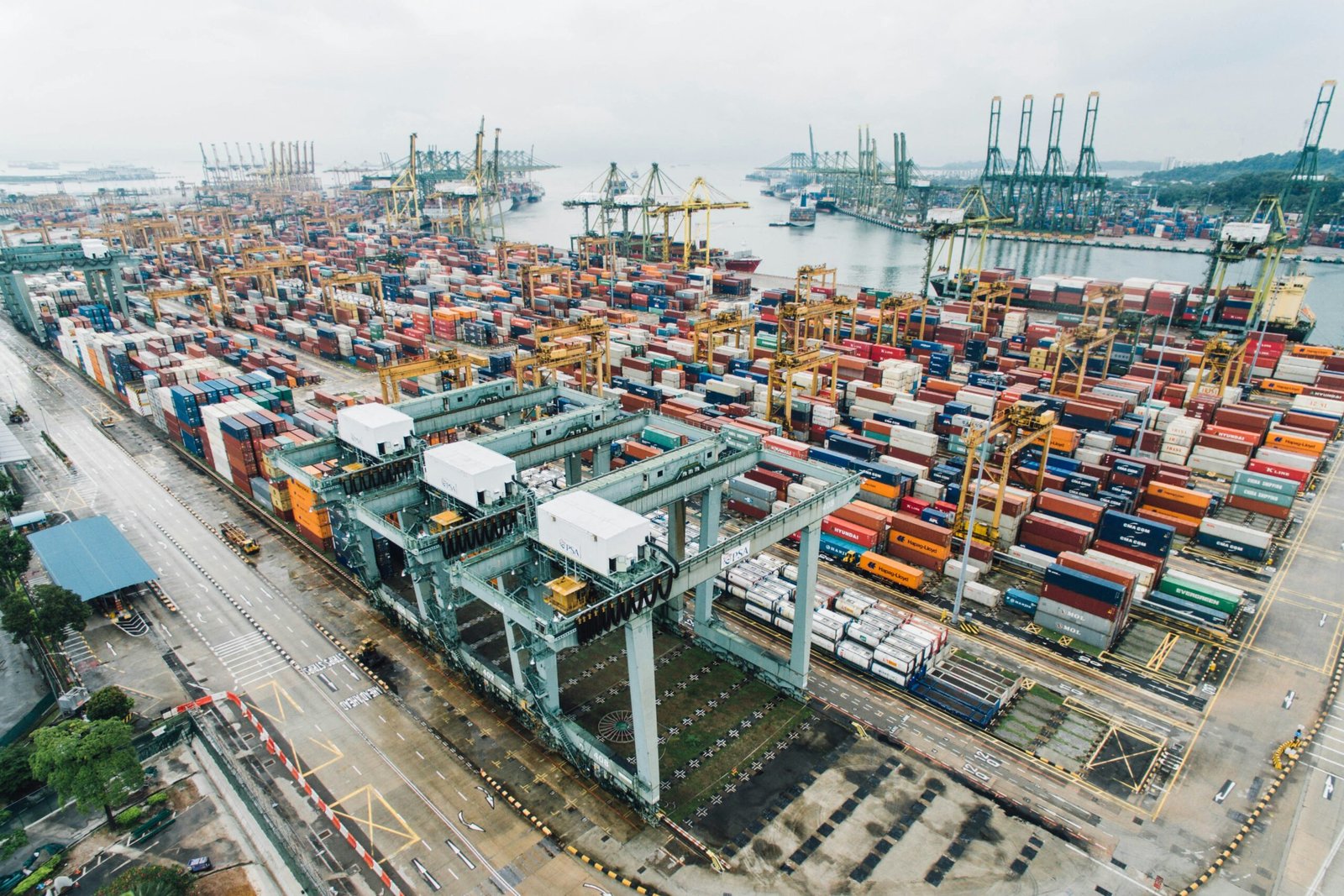What Are Open Cargo Policies?
Open cargo policies, commonly referred to as marine insurance or cargo insurance, are comprehensive insurance solutions designed to provide continuous coverage for the transport of goods over a specified period. Unlike single shipment policies that cover individual shipments, open cargo policies offer blanket protection for all consignments made within the policy period, thereby simplifying the administrative process for businesses engaged in frequent shipping activities.
The fundamental aspect of an open cargo policy is its capacity to cover a broad range of goods and transport modes. Coverage typically includes protection against physical loss or damage to cargo caused by perils such as theft, weather-related events, accidents during transit, and other unforeseen circumstances. These policies are highly customizable, allowing businesses to tailor coverage options to their specific transportation needs, whether by sea, air, or land.
However, open cargo policies also have exclusions that are imperative to understand. Common exclusions may include losses due to improper packaging, inherent vice (the natural deterioration or characteristic of the goods), delay, war, or strike-related incidents. It is crucial for policyholders to review these exclusions carefully and consider additional endorsements if necessary to cover gaps in the protection.
One of the primary distinctions between open cargo policies and other types of cargo insurance lies in their scope and flexibility. Annual policies, for example, may cover multiple shipments within a year but usually require periodic adjustments and renewals. Single shipment policies are transaction-specific, covering just one consignment per policy, which can be cumbersome for businesses with high shipping volumes. Open cargo policies, by offering continuous and automatic coverage, eliminate the need for insuring each shipment separately, thereby streamlining operations and providing peace of mind.
In essence, open cargo policies are well-suited for businesses that require reliable and ongoing coverage for their shipping activities. They offer a robust framework of protection against a wide array of risks, providing an efficient and effective solution for managing the complexities of global trade.
Benefits of Open Cargo Policies
Open cargo policies are an essential instrument for businesses involved in shipping and transportation, offering a myriad of advantages designed to streamline operations and provide comprehensive protection. The continuous coverage provided by open cargo policies is one of their foremost benefits. Unlike single-shipment policies, open cargo policies automatically cover all shipments within the policy period, ensuring that goods in transit are always protected without the need to procure separate insurance for each consignment.
Simplified administration is another significant advantage. Managing individual cargo insurance for every shipment can be a cumbersome and time-consuming task, which is effectively mitigated by an open cargo policy. Businesses can thus focus on their core operations while maintaining comprehensive coverage for their goods in transit. This simplification extends to documentation and record-keeping, thereby reducing administrative burdens.
From a financial perspective, open cargo policies offer cost-effectiveness. By insuring multiple shipments under a single policy, businesses can often secure more favorable premium rates compared to insuring individual shipments. This bulk approach to cargo insurance not only minimizes costs but also provides a predictable expense structure, aiding in more accurate budgeting and financial planning.
Moreover, open cargo policies facilitate easier claims processing. The assurance of consistent coverage means that the claims process is more streamlined, as the insurer is already familiar with the business’s shipping operations and risk profile. This familiarity can lead to faster settlements and less paperwork, enhancing overall efficiency.
The peace of mind and financial protection provided by open cargo policies cannot be overstated. By mitigating risks such as damage, loss, or theft of goods during transit, businesses can be assured of their investment’s safety. This security is particularly crucial for companies dealing with high-value shipments or operating in areas with high risk exposure.
Overall, open cargo policies present an attractive option for businesses, offering continuous coverage, simplified administration, cost savings, and streamlined claims processing. These benefits collectively enhance operational efficiency and provide robust financial protection, making open cargo policies a wise choice for enterprises engaged in the shipping and transportation of goods.
Who Needs Open Cargo Policies?
Open cargo policies are invaluable tools for various sectors involved in the regular shipment of goods, offering comprehensive coverage that addresses the intricate requirements of continual logistics. Businesses that often reap significant advantages from these policies include manufacturers, wholesalers, importers, and exporters—entities for whom shipping constitutes an everyday necessity.
Manufacturers, dealing with the consistent transportation of raw materials and finished products, find open cargo policies particularly beneficial. These policies streamline the insurance of their shipments, mitigating the risk of financial loss due to potential damage or loss during transit. High-volume shipping is common among manufacturers, making it impractical to insure individual shipments separately. An open cargo policy provides ongoing coverage, ensuring uninterrupted operations and safeguarding against disruptions.
For wholesalers, who maintain extensive product inventories and depend on constant resupply, open cargo policies prove indispensable. Because wholesaler operations involve both domestic and international transportation, an adaptable cargo insurance solution is crucial to manage diverse shipping routes and logistics scenarios. By implementing an open cargo policy, wholesalers can ensure a consistent safety net for their goods in transit, which is fundamental to sustaining their business models.
Importers and exporters face distinct challenges owing to international shipping complexities. Frequent interactions with customs, variations in international regulations, and extended transit times increase the risk of cargo damage or loss. Open cargo policies provide extensive coverage against these risks, offering importers and exporters peace of mind as they navigate global supply chains.
These policies are particularly advantageous in scenarios involving long-term supply contracts and high-volume shipping needs. For instance, a company engaged in a multi-year contract to supply machinery overseas would benefit immensely from the continuous coverage offered by an open cargo policy. Similarly, businesses engaging in complex logistics, where multiple modes of transportation and varied routing are necessary, find open cargo policies to be a flexible and accommodating insurance solution.
To illustrate, consider a multinational electronics manufacturer who adopted an open cargo policy to manage their worldwide shipping needs. The policy allowed them to streamline insurance processes, significantly reducing administrative overhead, and ensured comprehensive coverage against unforeseen transit risks. This strategic decision not only enhanced their operational efficiency but also reinforced their commitment to protecting their assets.
Considerations for Choosing an Open Cargo Policy
When selecting an open cargo policy, it is crucial to assess the specific coverage needs of your business. Each enterprise has unique requirements based on the type of goods being transported, the frequency of shipments, and the geographical scope of its operations. Carefully evaluate the commodities and potential hazards they might face during transit, such as theft, damage, or natural disasters. This assessment will help you determine the extent of coverage necessary to mitigate potential risks effectively.
Understanding the terms and conditions of a policy is equally important. Open cargo policies can vary significantly, not only in scope but also in exclusions and limitations. It is essential to scrutinize these details to ensure there are no gaps in coverage that could result in financial losses. Pay particular attention to clauses related to claim procedures, the documentation required for claims, and the time frames within which claims must be filed.
Evaluating insurers involves looking at their reputation, financial stability, and customer service record. A reputable insurance provider should have a history of prompt and fair claims handling, as this demonstrates their reliability in times of need. Additionally, consider the insurer’s expertise in marine insurance or cargo insurance, as this specialized knowledge can be beneficial in crafting policies that comprehensively cover the risks associated with your specific cargo.
Cost factors should not be overlooked. While it might be tempting to go for the cheapest option, value for money should be the primary consideration. An economical open cargo policy that lacks adequate coverage could turn out to be expensive in the event of a loss. Comparing policy options from different insurers can provide a clearer picture of what is reasonable in terms of pricing and coverage.
To tailor a policy to fit your business requirements, work closely with your insurer to customize the coverage. This might involve adding specific endorsements or riders that address unique risks pertinent to your operations. Practical advice from industry peers and insurance brokers can also be invaluable in identifying potential coverage gaps and ensuring comprehensive protection.
By thoroughly reviewing and comparing policy options, businesses can make informed decisions that safeguard their interests while optimizing costs. Choosing the right open cargo policy involves a balanced consideration of needs, terms, insurer reputation, and cost, ultimately providing peace of mind during the transit of goods.








